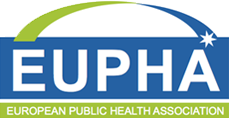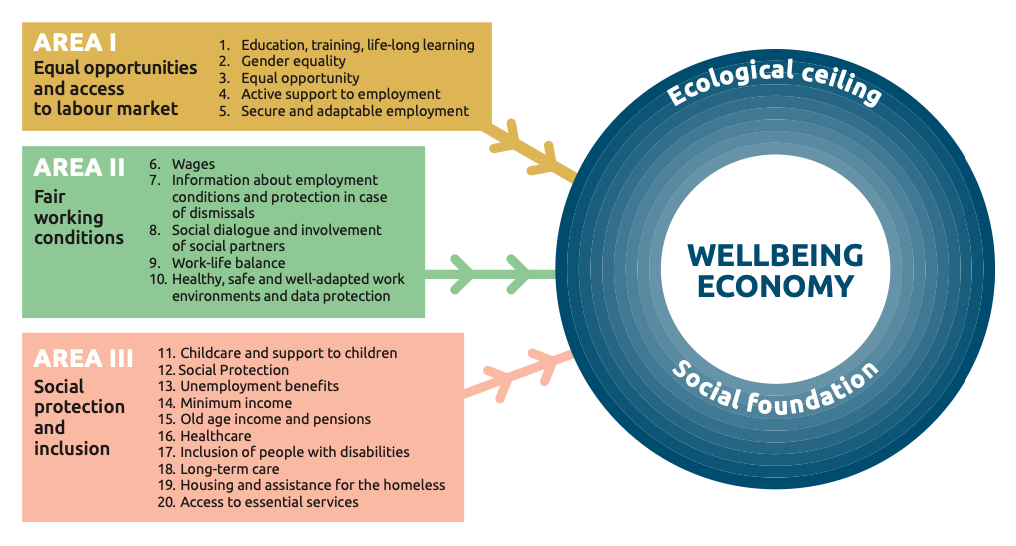

The COVID-19 pandemic has shown the importance of public health leadership. Countries that had strong public health leadership were better able to design and implement rapid and effective responses that reduced the spread of infection, minimized the impact on lives and the economy, and engaged with the public (1). As we move into the second year of the pandemic, it is more important than ever that public health professionals at local, national, and international levels, working with others involved in the management of the outbreak, are equipped to assume leadership roles. This means that they must keep up to date with the rapidly changing knowledge of this disease and what works, and what does not, to control it. They must ensure that they have the skills and competencies needed to address not just the pandemic, but also the complexities of communicating information to the public, and fixing the fractures in our societies that left so many people vulnerable to the consequences of this disease. And this means that they must come together, transcending disciplinary and professional boundaries, to find solutions (2). Public health organisations and workforce remain the backbone of the response to pandemics and any future health threats – they must be empowered to enact effective, agile, and responsive measures (3).
COVID-19 has brought to light many weaknesses of international and national health systems as countries navigate the interrelationships between the delivery of public health and research agendas. Austerity policies have worsened inequalities in health and added to the burden of non-communicable disease, making our populations more susceptible to COVID-19 infection and more likely to experience severe illness and death. Reinforcing international collaboration should be at the forefront of all our actions (4). Public health must be a key priority moving forward and governments must prepare long-term strategies for emergency preparedness and improved health, based on sustainable health systems that leave no-one behind.
We are committed to addressing the barriers faced by underrepresented groups, in the policies we advocate and in our actions. We have an explicit focus on reducing health inequalities within and between countries. We will lead by example, developing actionable policy recommendations in collaboration with our partners at European level. On tackling inequalities, we will be champions of best practice in delivering the policies we advocate to others. Workforce diversity in gender, age, race, and background all positively impact on leadership outcomes and the achievement of better health. We will strive for equality of opportunity and celebrate diversity. We will ensure our analysis, advocacy and action are diverse, inclusive and representative of the people we serve.
Over recent years, public health has suffered from major cuts in funding, in part due to policies pursued in response to the economic crisis, which have reduced the ability of governments to generate sufficient human, physical, and knowledge resources. This lack of resources has directly impacted on the preparedness and ability of health systems to deliver services. In tandem, public health specialists and experts have been underappreciated and often ignored as a key partner when decisions are taken (3). This approach is not sustainable. We need long-term investment in people and systems that can meet the growing challenges facing public health services.
The EU is responding with the ambitious new EU4Health (2021-2027). As Stella Kyriakides, Commissioner for Health and Food Safety, has said, with €5.1 billion of investment, it ‘will help strengthen our crisis preparedness and management of cross-border health threats as well as reinforcing the EU’s healthcare systems overall. EU4Health opens up a new chapter for EU health policy, and sends a clear signal to people in Europe that public health is our priority’ (5).
This is an important step towards realizing the vision set out by European Commission President Ursula von der Leyen for Building a European Health Union: ‘The coronavirus pandemic has highlighted the need for more coordination in the EU, more resilient health systems, and better preparation for future crises’ (6). It also aligns with the WHO European Programme of Work, 2020–2025: United Action for Better Health in Europe, which seeks to support health authorities in Member States to rise to that challenge, in each country and collectively in the Region to be able to meet the expectations of their citizens for universal access to quality care without fear of financial hardship; effective protection against health emergencies; and healthy communities, where public health actions and appropriate public policies secure a better life in an economy of well-being (7).
The momentum for cooperation created by the COVID-19 crisis must continue after the pandemic subsides. Moving forward, it is of utmost importance that public health is strengthened at its core, to ensure that it can respond to pandemics and other potential future health threats (5).
We, the Association of Schools of Public Health in the European Region (ASPHER) and the European Public Health Association (EUPHA) are committed to continuing our long-standing collaboration, working to ensure that the European public health workforce stays strong, well-trained, and committed as public health leaders (8). ASPHER and EUPHA – recognizing that public health leadership is now more important than ever – are coming together in solidarity to emphasize the need to:
- Promote multidisciplinary approaches, taking into account the breadth and depth of the field of public health;
- Promote the exchange of practice, research, translation of knowledge, training and public policies in collaboration with stakeholders throughout Europe and the world, to increase coordination in responses not only to COVID-19 but in general; and
- Continue to engage with European and international networks to ensure better coordination.
References:
1. Middleton J, Martin-Moreno JM, Barros H et al. ASPHER statement on the novel coronavirus disease (COVID-19) outbreak emergency. Int J Public Health 65, 237–238 (2020): https://link.springer.com/article/10.1007/s00038-020-01362-x
2. Nagyova I, Zeegers Paget D. Is there solidarity after COVID-19? European Journal of Public Health, Volume 30, Issue 4, August 2020, Pages 842–844, https://doi.org/10.1093/eurpub/ckaa151
3. Wong BLH, Delgrange M, Nathan NL, Luévano CD, Martin-Moreno JM, Otok R, Tulchinsky TH, Middleton J. The Association of Schools of Public Health in the European Region (ASPHER) Statement on the Erosion of Public Health Systems. March 2021:https://www.aspher.org/download/675/aspher_ph_erosion_statement.pdf
4. Zeegers Paget D, Nagyova I et al. European public health news European Journal of Public Health, Volume 30, Issue 6, December 2020, Pages 1233–1236, https://doi.org/10.1093/eurpub/ckaa210
5. European Commission. Commission welcomes political agreement on EU4Health. 15 December 2020:https://ec.europa.eu/commission/presscorner/detail/en/ip_20_2420
6. European Commission. Building a Better Health Union: Stronger crisis preparedness and response for Europe. 11 November 2020: https://ec.europa.eu/commission/presscorner/detail/en/ip_20_2041
7. World Health Organization Regional Office for Europe. About the European Programme of work:https://www.euro.who.int/en/health-topics/health-policy/european-programme-of-work/about-the-european-programme-of-work
8. Joint Statement on Public Health Workforce Development and Professionalisation: Call for a collaborative and consensus-building action (2017): https://www.aspher.org/download/142/vf_2017-phw-euhpp.pdf
For more information, please contact
Dr Iveta Nagyova, EUPHA president, president@eupha.org
Dr Dineke Zeegers Paget, EUPHA executive director, office@eupha.org
Mr Robert Otok, Director, robert.otok@aspher.org
The Association of Schools of Public Health in the European Region (ASPHER) is the key independent Europeanorganisation dedicated to strengthening the role of public health by improving education and training of public health professionals for both practice and research. ASPHER is a membership organisation of institutions, spread across EU and wider across WHO European Region, which are collectively concerned with the education and training, and professionalism, of those entering and working within the public health workforce.
office@aspher.org
www.aspher.org
@ASPHERoffice
The European Public Health Association, or EUPHA in short, is an umbrella organisation for public health associations in Europe. Our network of national associations of public health represents around 23’000 public health professionals. Our mission is to facilitate and activate a strong voice of the public health network by enhancing visibility of the evidence and by strengthening the capacity of public health professionals. EUPHA contributes to the preservation and improvement of public health in the European region through capacity and knowledge building. We are committed to creating a more inclusive Europe, narrowing all health inequalities among Europeans, by facilitating, activating, and disseminating strong evidence-based voices from the public health community and by strengthening the capacity of public health professionals to achieve evidence-based change.
office@eupha.org
www.eupha.org
@EUPHActs



